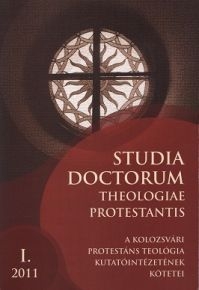
We kindly inform you that, as long as the subject affiliation of our 300.000+ articles is in progress, you might get unsufficient or no results on your third level or second level search. In this case, please broaden your search criteria.



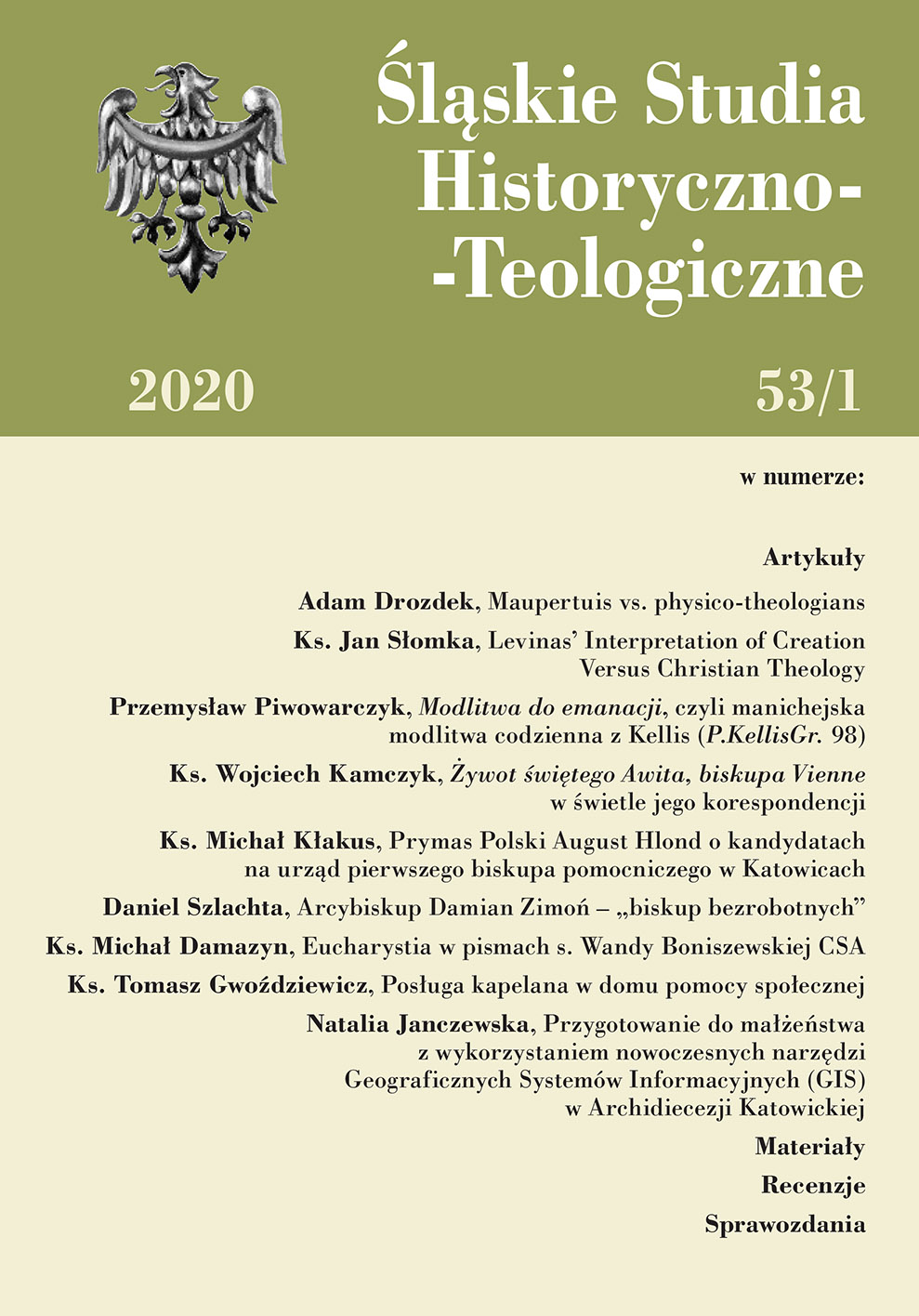
Wanda Boniszewska one of the most recognizable Polish mystics of the twentieth century. The publication of all her spiritual writings in 2016 opens the way to the analysis of her spirituality. Among its components, the Eucharist has an important place. The sacrament of Holy Communion is her daily practice, but also a real strengthening both in the fight against Satan and in suffering. It mentions visions that appear when she participates in the Holy Mass or adores the Blessed Sacrament and those that are a reference to the Passion of Christ. The love for Christ manifests in her as a desire to unite with the “Prison of Love in the Tabernacle” and pay Him for insults committed by priests and consecrated persons. The text is an analysis of those parts of the journal of Wanda Boniszewska, which have a reference to the Eucharist.
More...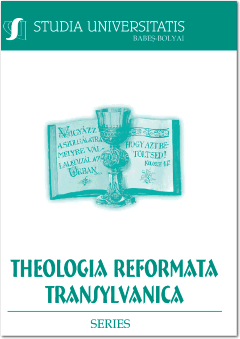
Living in a given historical place and time, we inherit stories, and by filtering them through our lives and experiences, we transform them into parts of our own story. In this article, we examine the relatedness between our stories and the story of the Kingdom of God. The metanarrative of the God–human relationship is a continuously changing system with permanent perspectives, a tradition that offers a system of rules to Christian communities and, on the other hand, interprets the individual’s life and integrates it into the history of salvation. Christian life appears in front of us as a study process, a search, but it is hope as well. We should not forget about the eschatological dimension of Christian faith: the hope in God, who saved us in the past and will hold us in the future.
More...
God said to Moses, “I am who I am” (Exodus 3,14). Although Christian churches seek to present the New Testaments’ image of God, the loving, caring, and merciful God, yet the idea of a punitive, strict, and fearsome God lives stronger in many. Our image of God not only determines the nature of our relationship with God, but it also influences our personality, actions, self-concept, mindset, and social relations. It acts within and through us. Although everyone has an image of God – regardless of whether one is a believer or not –, how we experience God’s relation to us is manifold. But why do we experience God’s relationship with us in so many ways? What circumstances shape and influence our image of God? It is not unusual that even believers of the same congregation give accounts of diverse images of God. Why? These questions are answered by calling upon psychological insights.
More...
We are living in a designer world, where not only the circumstances but our gods will be created consciously. We hunger for a God. Choosing an inadequate god, a god too small to transcend our limitations and who therefore can neither save nor transform us, drives us to keep hunting. This study reviews the phenomenology of Christian spirituality, religious practice and places special emphasis on these areas. We can find a correlation between spirituality and spiritual well-being and happiness, factors which contribute to a positive personal development. We are condemned to meaning. There is a universal impulse to assign meaning to our joys and sorrows. Christian spirituality is a condition for us to reframe and understand our life perspectives and reach the “Courage to be” (Tillich).
More...
Lajos Csiky (1852–1925) was a late 19th and early 20th-century professor of practical theology at the Theological Academy of Debrecen. His works have not yet been researched accordingly. In the first part of this short paper, we would like to present the socio-theological context in which the renowned theologian spent his creative years, focusing especially on the debate of the day between liberal and orthodox theology. In the second part, we would like to reflect on the way his major theological works were received by his contemporaries during a span of more than four decades of academic activity.
More...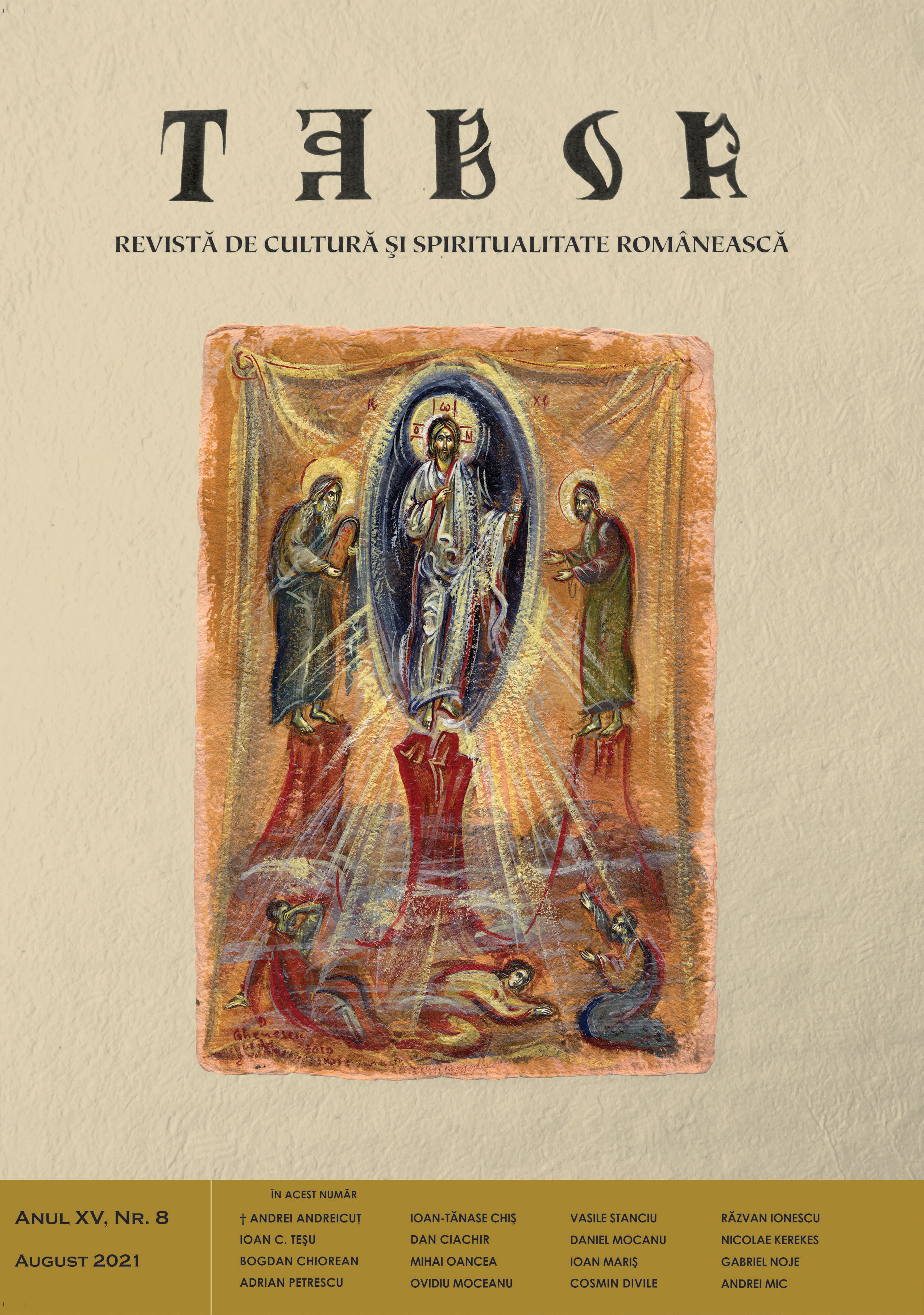
Today, traditional education, with blackboard and chalk or with pencil and pen, has given way to digital education and its new and innovative principles. Parents and children triy to adapt as efficiently and successfully as possible. Digital technology has penetrated deeply into the world and into the life of contemporary man. The present study analyzes what impact this aspect has on children of 1-3 years. From this early age, not only a pattern of relationship with digital technology is born, so present in the world and in our lives, but also the lifestyle of the child, the future adult, is shaped. And this relationship can be one of discernment, using technology as a useful tool under control or, on the contrary, a sickening one, of enslaving addiction to it, which leads to loneliness and sadness, to serious bodily and mental illnesses.
More...
The “Oath of Hippocrates” sets the behavioral parameters in which the medical act takes place, as well as everything related to medicine, “the noblest of all arts.” The moral and legal norms stated in the oath concern the relations between the doctor and his colleagues, between the doctor and the patient, as well as his family (“primum non nocere”, confidentiality, fairness etc.), taking responsibility for the given treatment and prohibition to contribute in any way to the suppression of life. Hippocrates’ writings were strongly influenced by the philosophy of his times. Even though he did not have an original philosophical system, he was so interested in philosophy that he wrote the famous Aphorisms and The Oath, along with three other works on ethics: The Doctor, The Law, Medical Decorum, writings that reveal his predilection for ethics combined with medical empiricism. Hippocrates wrote several works, although historical information does not confirm that all could be attributed to him. The issue of the author of the famous Oath of Hippocrates is still controversial today. Historical, literary and philosophical methods have found that the style and ideas contained in this text are inconsistent with Hippocrates’ time and philosophy, with great differences between The Oath and other works that are confirmed as belonging to the Greek doctor. Although essential among the promoters of bioethical norms, Hippocrates cannot be considered the archetype of moral and deontological principles, and the oath attributed to him must necessarily be interpreted in the context of the ethos of the time in which it was written.
More...
Even if, generally speaking, “religion is the source and soul of culture”, we are witnessing a cultural evisceration of religion, through the phrase of cultural christianity, promoted as a legitimate, current approach to religious commitment, a supposedly more open understanding of the dimension of faith in the lives of individuals. It slides from the internalization of faith to a faith of so called educated people, which assumes faith more as a social mechanism than as a path with soteriological valences.What he is proposing is a detachment of the christian’s heart from his belief for an objective questioning of the faith, liberation from the bodice of subjectivity and organization of a fixed agenda, without margin of error, of the religious approach.
More...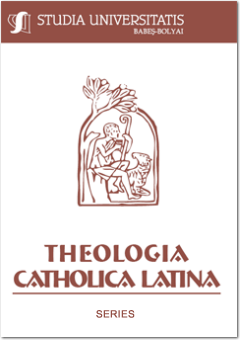
The present article addresses two groups of delicts from the sixth book of the current Code of Canon Law (Sanctions in the Church), i.e. Delicts against the sanctity of the Eucharist and the simulation of the liturgical action. The content of this book is debated among theologians and canonists, raising a variety of questions: Does the Church have the right to coerce the faithful with penal sanctions? Should penal law exist in the Church, or do certain organizing measures suffice? Based on the first canon of the sixth book (can. 1311), this article shows that using sanctions is a native right of the Church. Since sacraments, in particular the Eucharist, belong to the essence of the Church, the delicts against the sanctity of the Most Holy Sacrament and the simulation of the Sacraments have a great impact on the life of the Church. Therefore, although there are many open questions and several ambiguities around this issue, the present article argues that the Church needs an adequate legal order in the case of sacraments.
More...
This paper examines pastoral practice of the Academic Parish of Prague in compliance with its specific character – service to people from academia. Data analysis from qualitative interviews and document-based research identified two major areas of ministry – pastoral care (ad intra) and public engagement (ad extra) – and positioned the community somewhat between a parish ministry and chaplaincy. Specifically, empirical research suggested that people opt for this parish because it acknowledges their social, spiritual and intellectual needs seriously and relevantly, and addresses its members with respect. Theologically, it maintains there is a compatibility between the parish offer and expectations of people, and argues that the parish interpreted and handled its specific mission – ad- dressing urban and educated people – relevantly and authentically.
More...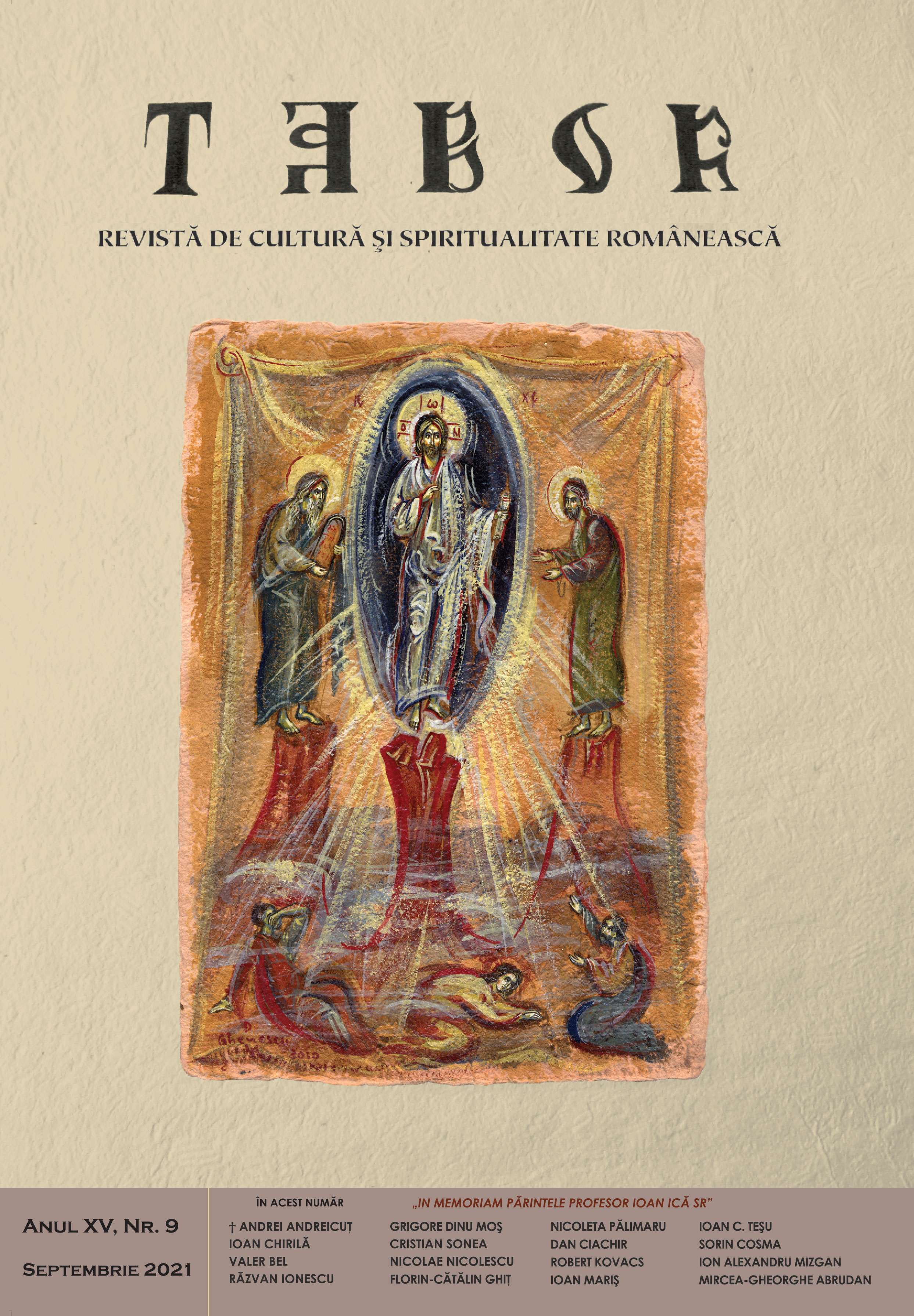
The article analyzes the impact of digital technology on children, aged 3-12. Their entire behavior is adapted, since childhood, to fundamental mutations. They spend much more time on screens than doing anything else. The internet generation, the digital natives, iKids, are considered a hurried, bored generation, too little resilient and often depressed, the generation of “zero expectation”, namely lack of patience. The biggest challenge for teachers nowadays is to keep the children’s interest in the act of learning. The age of 3-12 is when children become better acquainted with technology. If this is wisely supervised by their parents, they will acquire some useful digital habits. But if they go into this infinite digital world on their own, without responsible guidance, mainly from parents, children are exposed to certain dangers.
More...
This article summarizes and interprets the results of the paper-and-pencil questionnaires filled in by the ministers of the Hungarian Unitarian Church, as well as the suggestions made in order to preserve their health, emphasizing primarily mental health issues in order to promote burnout prevention and intervention. The research focuses on how the ministers perceive their own state of health and the extent to which subjective health is consistent with objective indicators of health and a health-conscious lifestyle, and how church size, marital status, and age affect life satisfaction, and the degree of risk of burnout, or how age determines the level of depression and life satisfaction among ministers.
More...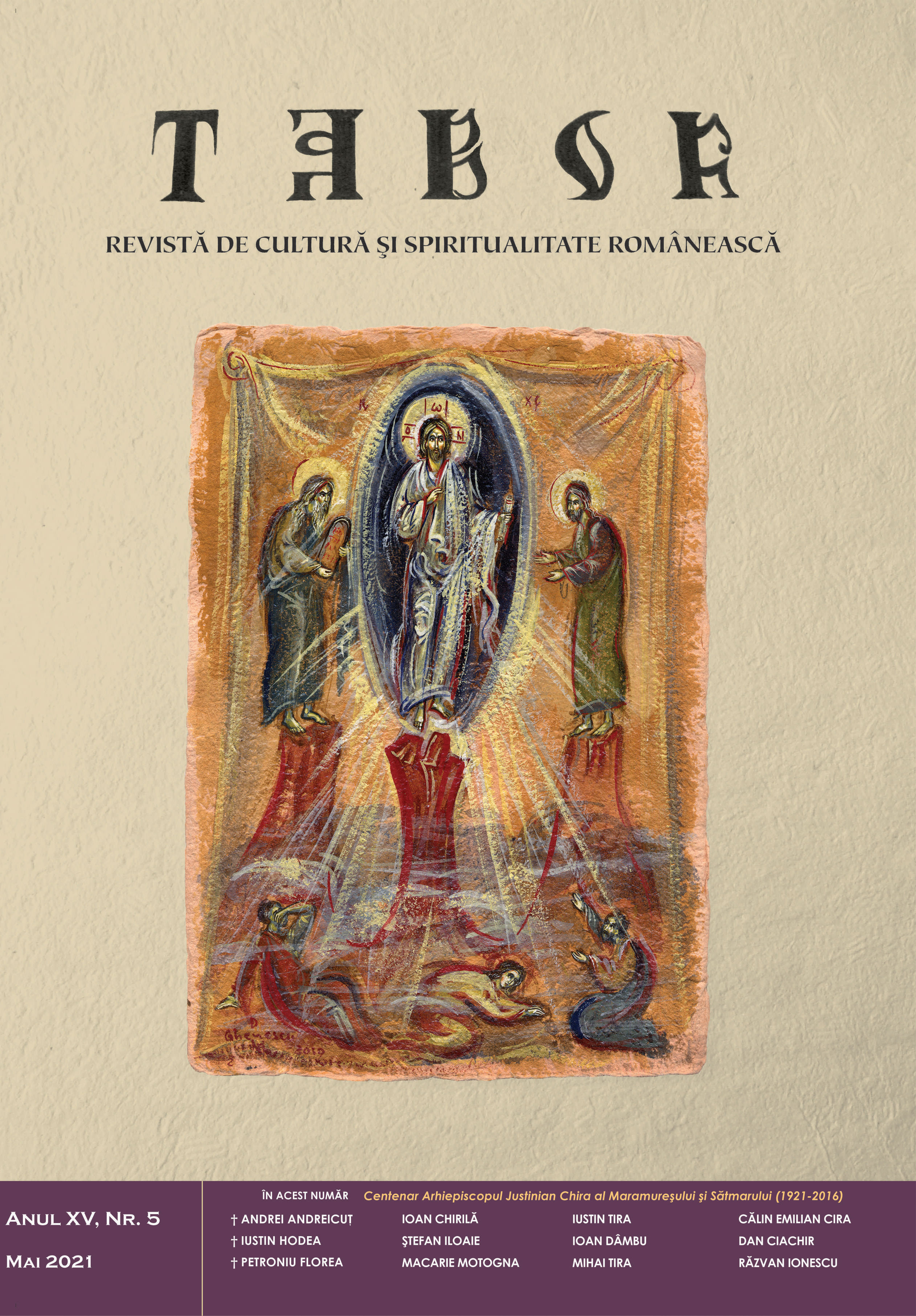
The Holy Synod dedicated this year to the pastoral care of Romanians abroad and to the commemoration of the departed. Thinking of those reposed, we will have memorial services for them, we will take care of the cemeteries. The most important tomb for all of Christendom is the Holy Sepulcher in Jerusalem, where the Savior rested for three days and then rose from the dead. Believers are eager to make a pilgrimage to the Holy Sepulcher at least once in their lives. In the Basilica of the Holy Sepulcher, in addition to the Orthodox who are in charge of the central church, there are Roman Catholic and Armenian prayer altars. But the Holy Light descends on Holy Saturday at the service of the Orthodox and from the chapel of the Holy Sepulcher. We have great reverence for the Holy Sepulcher, but more importantly it is from there that Christ rose from the dead. Because Christians believe in the eternity of the soul and in the resurrection of the dead, they give special attention to the graves and a special care to cemeteries.
More...
Having before us the glory of the Cross and the victory of the Resurrection, we have nothing to fear, for the first message of the Lord after the Resurrection was: “Rejoice! Don’t be afraid! ” If last year we sometimes showed signs of weakness and withdrew like the disciples of the Lord in the pavilion, praying with fear and doubt, behold, Christ is risen, our Lord has fulfilled His promise to be Alive, He has come to us, He rebuked us for our doubt, but strengthened us and clothed us with divine grace. Let us not be afraid, first of all, of ourselves, who have promised faithfulness to Christ and to His Church till the end. All human sources and ideologies have a beginning and an end. All past ideologies have been condemned in recent history, but also the present ones will be condemned in future history, because the world cannot lose its reason to live in the normality of divine creation, in freedom as a heavenly gift. Fear, horror, cowardice, betrayal, escape are feelings foreign to true Christians.
More...
The angel and man, having freedom, can use it in a good or in a wrong way, turning away from God and committing sin. Man was created for life, not death, but death already existed in the world when God created man because of Satan’s work. In this pastoral letter we will show how sin and death entered the world, with the mention that there is spiritual and bodily death.
More...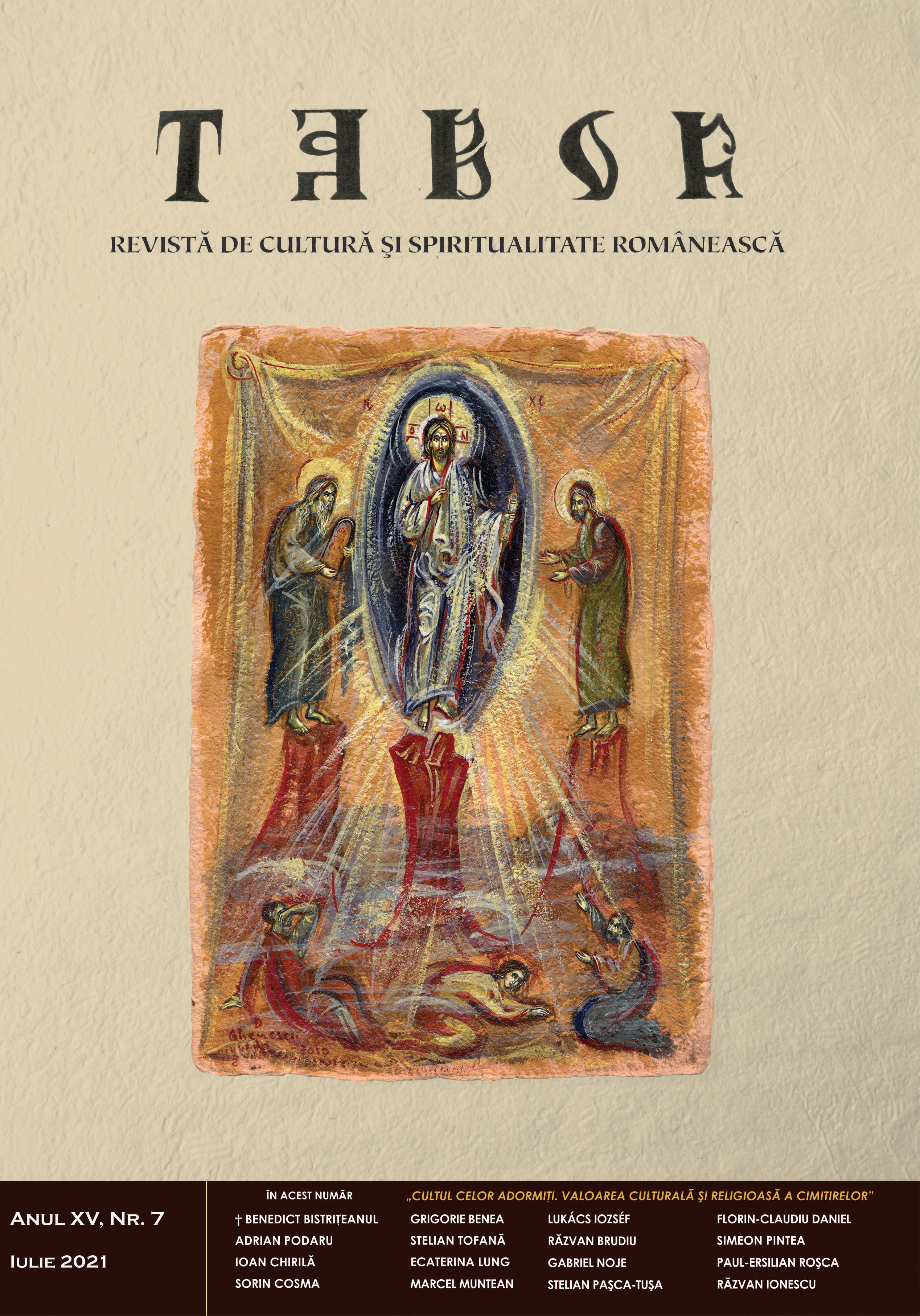
People keep their communion with the deceased loved ones, on a religious level, through the acts of worship, present in all nations and in all religions, in various and multiple forms, since always. Based on the belief in the immortality of the soul, the acts of worship related to the separation caused by death have been practiced over time in various forms, even in architectural, cultural, artistic and literary forms. Christian religion associates the belief in the resurrection to that of immortality of the soul, which led to new attitudes and practices related to this separation caused by death, promoting optimism and spiritualization of acts of worship, through “prayer in spirit and in truth” (Jn 4, 24).
More...
The present study addresses, as a first step, how the phenomenon of death is perceived in today’s society. It highlights that for the culture of recent society, death has become an individualized and exclusively private event. In highly urbanized and industrialized societies, the individual experiences his own death in a solitary way, away from family and loved ones. Also the habit of cosmeticizing funerals – in order to leave as discreetly as possible and for the psychological comfort of the others – hides an attempt to deny the reality of death. As a second step, starting from the meaning of death in Christianity, the study focuses on the importance of the funeral service in the Christian’s life. Beyond important aspects regarding symbolism, such as the placement of the deceased in the grave, or regarding the theological richness of the prayers that are read at the religious service, the study pleads for reintroducing the funeral ceremony during the Divine Liturgy. This would certainly actuate and improve the missionary work of the Church.
More...